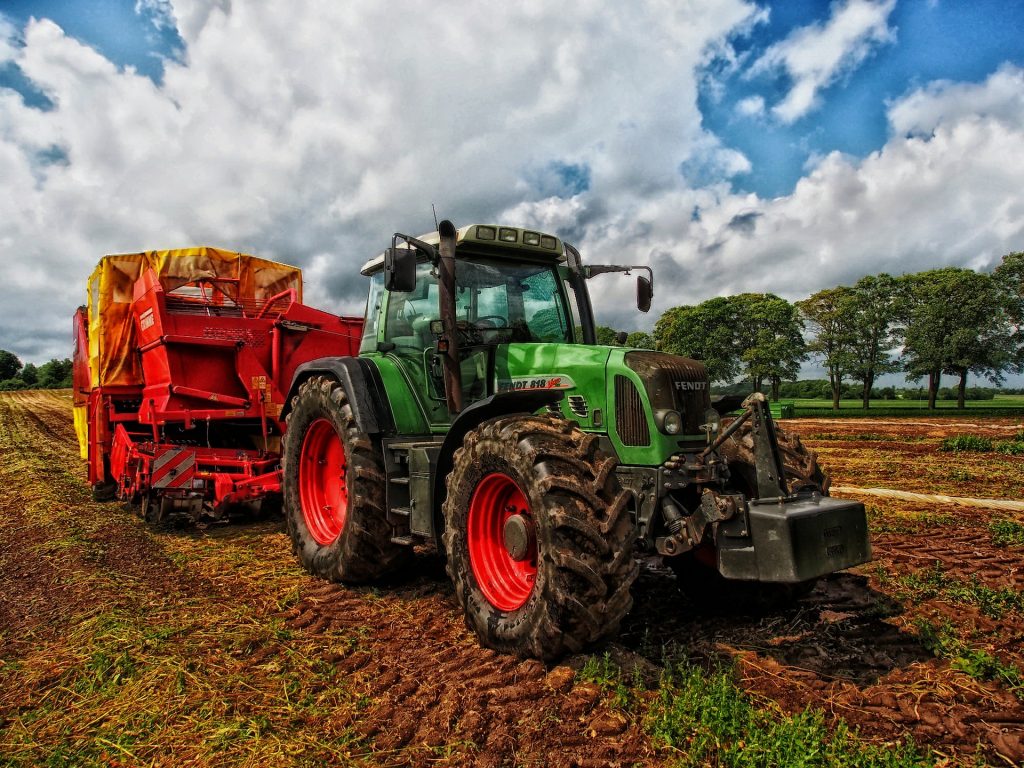Tractor Accidents: Serious But Often Preventable

For farmers and farm workers, tractors are modern workhorses that are reliable and invaluable for a wide range of tasks. Most farmers could not imagine working their fields without a tractor, and many young farmers learn to drive tractors before other vehicles. Yet, serious accidents can and do occur around and on tractors, frequently resulting in severe injuries and even deaths.
With how common tractors are across Nebraska, it’s worth taking a few minutes to think about tractor safety and make sure you are doing all you can to keep yourself and your loved ones safe.
Common Types of Tractor Accidents
The most common type of tractor accident that causes serious injuries is a rollover. Rollovers are more common with tractors than a lot of other vehicles for a few reasons, but particularly the way in which they are designed. The rocky or uneven terrain that tractors are expected to perform on can also increase the risk of a rollover accident, especially for inexperienced drivers or those whose judgment is impaired by stress, fatigue, or alcohol.
Other common accidents include being thrown from a tractor or falling off of one while it is in use. Being run over or struck by a tractor is also quite common, as are collisions with other vehicles, especially non-farm vehicles when a tractor is taken onto a road or highway.
Common Injuries from Tractor Accidents
Injuries from a tractor accident can vary quite a bit, though fractured bones account for nearly half of all tractor injuries. Even minor fractures typically require medical attention in order to manage pain and ensure the bone heals properly. Internal injuries and lacerations, or open wounds, are also quite common in a tractor accident.
Kids are often at greater risk of injury from a tractor due to their small size, especially since many children are drawn to tractors and similar large equipment. Children should be kept a safe distance away from a tractor that is in use, and watched closely whenever they may be playing around or on a tractor that is turned off. Children are more likely to be thrown from or jump off a tractor and suffer injuries as a result, which is why it is important to teach kids safe behavior around all vehicles, including tractors and other farm equipment.
Tractor Safety Guidelines
Tractor safety can take many forms, but it can be helpful to think about it in terms of steps. In other words: before, during, and after tractor operation. Consider the following:
- Before use: Before getting on a tractor, it is a good idea to perform at least a quick inspection of the vehicle. Anyone driving a tractor should approach it with a “safety first” mentality and always keep safe practices and behavior in mind. It is also best for anyone operating a tractor to be in good mental and physical condition before using it, which means getting plenty of rest and avoiding alcohol or prescription drugs before driving. Be sure to outfit the tractor with a rollover protection system and safety equipment such as seatbelts if possible.
- During operation: While driving a tractor, wear a seatbelt (if available) and do not allow extra riders onto the tractor. It is not a toy or amusement park ride, so only those who need to be on the tractor should be there. Keep the tractor a safe distance from bystanders or others nearby, and always be mindful of ground or road conditions when using the tractor.
- Afterward: After driving a tractor, always turn the engine off and remove the keys to keep others from operating it. Before performing any maintenance or removing equipment, let the engine and all moving parts come to a full stop to prevent injuries. The driver can also quickly inspect the vehicle after use to look for any damage or issues that may have occurred while driving it.
Where to Start with an Inspection
If you are not sure what to look for when inspecting a tractor before use, consider the following options. These should not be considered an absolute guide, but are offered as a good place to start. Consult the operating manual and other information from the tractor’s manufacturer for more information.
- Make sure the operator’s seat is clear of debris and sturdy.
- Check that seat belts are in place and fully functional.
- Look for a Rollover Protective Structure (ROPS) in place and in good condition.
- Check lights and flashers to be sure they are operational.
- Be sure tires are inflated properly.
- Check the brakes and be sure they lock together properly.
- Look at hydraulic systems and check for visible leaks.
- Make sure there is a fire extinguisher in place and check the date on it.
- Be sure to have a fully stocked first-aid kit on the tractor.
- Check the area for bystanders, including pets and children, before starting the tractor.
If the worst does happen and you or someone you know is injured in a tractor accident, get medical attention immediately. After, you might consider filing a claim against the owner or operator of the tractor to pay for your medical bills, lost wages, and any other losses you suffered as a result. For a free consultation with an agricultural lawyer serving Nebraska and Iowa, please call Bottlinger Law L.L.C. at (402) 505-8234.
Bottlinger Law
Consultation Form
Our legal team is ready to help. Please fill out the form below to set up a free consultation with the Bottlinger Law team.